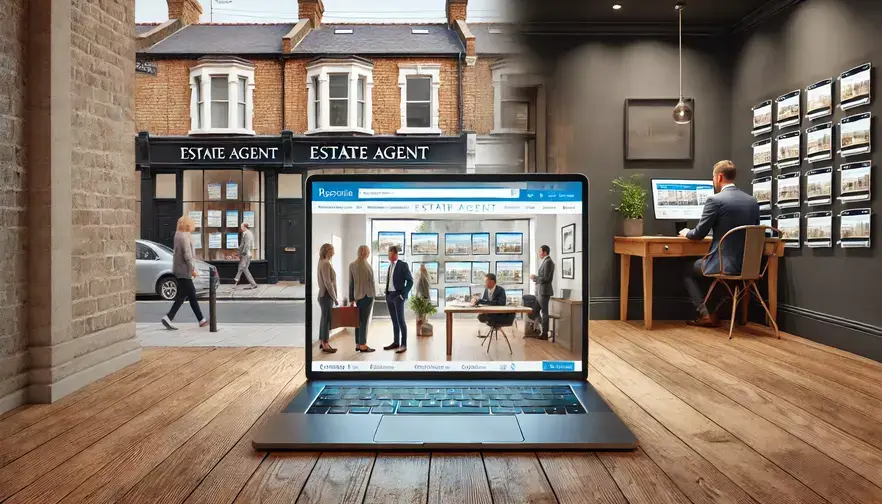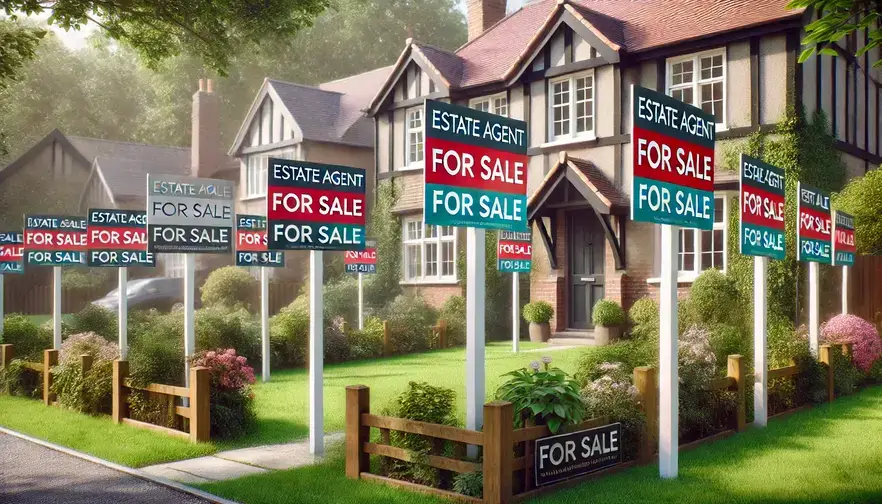Key Questions to Ask
Experience and Track Record
1. How long have you been an estate agent?
A seasoned agent with years of experience is likely to have a deeper understanding of the market and the sales process. They can provide valuable insights and handle unexpected challenges more effectively. Experience often correlates with a greater network of contacts and a more nuanced approach to marketing and negotiations.
2. How many properties have you sold in this area in the past year?
An agent with a strong track record in your local area will be more familiar with local market trends and buyer preferences, which can be crucial for a successful sale. This knowledge can help in setting a competitive asking price and targeting the right audience. Ask for specific examples of properties similar to yours that they have sold recently.
3. What types of properties do you specialise in?
Agents who specialise in selling properties similar to yours may have more relevant experience and a better network of potential buyers. For instance, if you are selling a historic home, an agent who specialises in heritage properties will likely have a deeper understanding of the unique selling points and challenges associated with such properties.
4. Can you provide references from recent clients?
Speaking with previous clients can give you an idea of the agent's reliability, communication skills, and overall performance. Ask the references about their overall experience, how the agent handled challenges, and if they would recommend the agent to others. Personal testimonials can provide valuable insights beyond what you see in reviews.
Valuation and Pricing
5. How do you determine the asking price for my property?
Understanding the agent's approach to pricing can help you gauge their market knowledge and ensure your property is competitively priced. They should explain their methodology, including how they account for local market trends, comparable properties, and unique features of your home. A well-supported pricing strategy can set realistic expectations and attract serious buyers.
6. What is your track record for achieving the asking price?
An agent's success rate in achieving the asking price can indicate their negotiation skills and market expertise. Look for agents who consistently sell properties at or near the asking price. This can be a sign of their ability to set realistic prices and effectively manage buyer expectations and negotiations.
7. Can you provide a comparative market analysis?
A comparative market analysis (CMA) compares your property with similar properties recently sold in the area, helping you understand its market value. A detailed CMA should include data on recent sales, current listings, and expired listings to provide a comprehensive picture of the local market. Reviewing this analysis can help you make informed decisions about your asking price.
Marketing Strategy
8. How will you market my property?
A comprehensive marketing plan can significantly impact the visibility and attractiveness of your property. The agent should outline their strategy, including online listings, social media marketing, email campaigns, and any traditional methods like print advertisements or open houses. Effective marketing can increase exposure and attract more potential buyers.
9. What online platforms and tools do you use?
Effective use of online platforms can widen the reach of your property listing and attract more potential buyers. Ask about the specific websites and tools they use, such as Rightmove, Zoopla, and social media channels. Understanding their digital marketing approach can give you confidence that your property will be seen by a broad audience.
10. Do you offer professional photography and virtual tours?
High-quality photos and virtual tours can enhance your property's online presence and make it more appealing to buyers. Professional photography can highlight your home's best features, while virtual tours allow potential buyers to explore the property remotely, increasing their interest and engagement.
Communication and Availability
11. How often will you update me on progress?
Regular updates keep you informed and reduce anxiety during the selling process. The agent should commit to a consistent communication schedule, whether it's weekly updates or after significant events like viewings and offers. Clear communication helps you stay informed and involved in the process.
12. What is your preferred method of communication?
Knowing the agent's communication style ensures you can stay in touch easily. Whether they prefer phone calls, emails, or text messages, their preferred method should align with yours to ensure smooth and effective communication throughout the sale.
13. Are you available on weekends and evenings?
Availability during non-working hours can be crucial for accommodating potential buyers' schedules. Agents who are flexible and willing to work around buyers' availability can increase the chances of showing your property to more interested parties and securing a sale.
Fees and Contract Terms
14. What are your fees and what do they include?
Understanding the fee structure helps you evaluate the overall cost of the agent's services. Ask for a detailed breakdown of their fees and what services are included, such as marketing costs, administrative fees, and any additional expenses. Knowing the total cost upfront can help you budget accordingly.
15. Are there any additional costs I should be aware of?
Being aware of any extra costs can prevent unexpected expenses. Ask about potential costs for things like additional advertising, staging, or repairs. Transparency in fees is crucial for avoiding surprises later in the process.
16. What is the length of the contract?
Knowing the contract length ensures you understand your commitment to the agent. Most contracts range from 8 to 12 weeks, but this can vary. Make sure the contract length aligns with your expectations and needs. Also, understand the terms for renewing or terminating the contract.
17. What happens if I'm not satisfied with your service?
It's essential to know your options if the agent's performance doesn't meet your expectations. Ask about the process for terminating the contract and any penalties or fees associated with early termination. Understanding these terms can give you peace of mind and flexibility if things don't go as planned.
Negotiation and Sales Strategy
18. How do you handle negotiations?
Effective negotiation skills are crucial for securing the best possible deal. The agent should explain their approach to negotiating offers, including how they handle counteroffers and any strategies they use to maximise your sale price. Confidence in their negotiation skills can reassure you that they will work to get the best deal for you.
19. What is your strategy for managing multiple offers?
An agent's approach to handling multiple offers can impact the final sale price and terms. Ask how they manage multiple bids and what strategies they use to ensure a fair and competitive process. This can include setting deadlines for offers, organising bid reviews, and advising you on the best course of action.
20. How do you ensure the sale goes through smoothly?
Understanding their process for managing the sale can give you confidence in their ability to handle the transaction efficiently. They should outline their approach to coordinating with solicitors, managing the paperwork, and handling any issues that arise during the sale. A proactive agent can help prevent delays and complications.
Local Market Knowledge
21. How well do you know the local market?
Local market knowledge is vital for accurate pricing and effective marketing. The agent should demonstrate an understanding of local property trends, buyer demographics, and key factors influencing the market in your area. This knowledge can help tailor their approach to your specific needs.
22. Can you provide insights into the local property trends?
Insights into local trends help you understand the current market dynamics and set realistic expectations. Ask about recent trends in property values, the average time properties spend on the market, and any factors currently affecting demand. This information can help you make informed decisions about pricing and marketing strategies.
23. What are the most attractive features of this area?
Knowing the area's key selling points can help highlight your property's strengths. The agent should be able to identify and promote features such as good schools, transportation links, local amenities, and community attractions that make your property appealing to potential buyers.
Additional Tips for Interviewing Estate Agents
How to Prepare for the Interview
Gather information about your property, the local market, and what you expect from the sale. This preparation will help you ask relevant questions and understand the agent's responses better. Have a list of specific questions and any concerns ready to ensure a productive conversation.
Comparing Multiple Agents
Interview at least three agents to compare their approaches and services. This comparison will give you a better sense of who is best suited to sell your property. Pay attention to their professionalism, enthusiasm, and the quality of their responses to your questions.
Trusting Your Instincts
Choose an agent you feel comfortable with and who seems genuinely interested in helping you achieve your goals. Trusting your gut feeling can often lead to a more pleasant and productive working relationship. An agent who listens to your needs and provides clear, honest answers is likely to be a better fit.
Looking for Red Flags
Watch out for signs such as lack of enthusiasm, vague answers, or pressure to sign a contract quickly. These red flags can indicate potential problems down the line. An agent who is pushy or dismissive may not have your best interests at heart.
Red Flags to Watch Out For
Lack of Local Knowledge
An agent who doesn't know the area well may struggle to market your property effectively. Local expertise is crucial for setting the right price and attracting the right buyers. Ensure the agent can demonstrate a deep understanding of your local market.
Poor Communication
If an agent is hard to reach or doesn't communicate clearly, it can lead to misunderstandings and delays. Good communication is essential for a smooth sale process. Choose an agent who is responsive and keeps you informed throughout the process.
Unrealistic Promises
Be wary of agents who promise an unrealistically high asking price or quick sale without proper justification. Such promises can lead to disappointment and frustration. A trustworthy agent will provide a realistic assessment based on data and experience.
High Turnover
Frequent changes in the agent's team can disrupt the continuity of your sales process. Stability and consistency are important for maintaining momentum. Ask about the agent's team structure and how they manage staff changes.
Hidden Fees
Ensure all fees are transparent and ask for a detailed breakdown of costs. Hidden fees can quickly add up and impact your net proceeds. Transparency in fee structures is a sign of a trustworthy agent.
Summary Checklist
Experience and Track Record
- Years of experience
- Properties sold
- Specialisation
- Client references
Valuation and Pricing
- Pricing strategy
- Track record
- Comparative market analysis
Marketing Strategy
- Marketing plan
- Online platforms
- Professional photography
- Virtual tours
Communication and Availability
- Update frequency
- Communication method
- Availability
Fees and Contract Terms
- Fees
- Additional costs
- Contract length
- Satisfaction guarantee
Negotiation and Sales Strategy
- Negotiation approach
- Multiple offers strategy
- Sale management
Local Market Knowledge
- Local expertise
- Property trends
- Area features
Conclusion
Choosing the right estate agent can significantly impact the success of your home sale. By asking these essential questions and paying attention to the additional tips and red flags, you can make an informed decision. Take your time, compare multiple agents, and trust your instincts to find the best agent for your needs. Happy selling!




